- Home
- Anne Stuart
Barrett's Hill Page 2
Barrett's Hill Read online
Page 2
Chapter 2
LIFE AT KARLEW’S soon settled into a pattern: bearable but stifling. That first evening I was introduced to the honorary member of our happy little family, Fathimore Wilby, Karlew’s meek assistant. Just above medium height, and weighing as much as a wet cat, he had a pinched, pock-marked face, tiny little eyes, a sickly gray mustache, and an extremely large, pimpled nose. When we first met, all I could do was stare at the monstrous nose; his light conversation was not such that could distract me.
He had rooms at the local hotel and to my regret was given free run of the house. He took almost all his meals with us and from the start made me the object of fulsome compliments and attentions. I found him repulsive, and I kept out of his way as much as possible. I had never cared much for men at all, but the idea of Fathimore paying court was ridiculous. Besides, he had a way of looking at me through those moist, ravening eyes that made me extremely uncomfortable.
“You should feel complimented, Miranda,” Maxine told me with cheerful malice. “He hasn’t looked at another woman besides his mother for as long as I’ve known him. Why, maybe he’ll propose and you can be mistress of your own house.”
I gave her a look of sheer hatred in reward for that. “Where’s his mother now? I’m surprised the disgusting creature isn’t tied to her apron strings.”
“Oh, he was. They used to live in the little red house by the church for the longest time. You know the one I mean?”
I nodded.
Her voice took on a sepulchral depth. “They seemed like the perfect couple until it happened.”
“Until what happened?” I demanded.
“Until his mother was found dead. Fell down the stairs, they said. I don’t believe it for a minute.”
“You think Fathimore pushed her?” Life in Pomroy was becoming more interesting all the time.
“I don’t know,” Maxine admitted. “But I wouldn’t put it past him. His eyes are enough to frighten anyone.” She shuddered. “Like spiders.”
“Well,” I said calmly, “who would have guessed such depths lurked beneath this New England calm? Murders and such.”
“That’s not the only murder that happened around here,” Maxine said darkly. “There was another one.”
I waited for her to continue. “Well?” I demanded. “Tell me! Who was killed? Who did it?”
“I don’t exactly know,” she admitted. “All I know is it involved your father, mine, Fathimore, and a man named Adam Traywick. But no one will ever talk about it.”
Here, thank heavens, my sixth sense, which had failed so miserably with Barrett’s Hill, began to work. Adam Traywick immediately fascinated me.
“Adam Traywick,” I repeated slowly, savoring the sound of his name. “Who do you suppose he murdered?”
“I didn’t say he murdered anyone,” Maxine said grumpily. “I just said he was involved. And I know where it happened, too. On Barrett’s Hill!”
“Well, if you know who was involved and where it happened I don’t see why you don’t know who was killed,” I remarked sensibly. “Have you ever seen this man?”
“Who, Adam Traywick? I’ve never seen him in my life. Anyway, I told you, no one will talk about the murder,” she complained. “Lord knows, I’ve tried dozens of times. Nanny once scrubbed my mouth out with soap when I tried to question her.”
“Well, I’m a bit too old for that sort of treatment,” I said confidently. “I’ll find out what happened.”
“You’d better be careful,” Maxine warned.
“Don’t worry, Maxine. I can get away with a lot more than you can.”
Maxine stuck her tongue out at me.
“COUSIN KARLEW . . . ,” I began casually at dinner that night, trying to avoid Fathimore’s fawning gaze from across the table. “Who was murdered on Barrett’s Hill?”
Karlew dropped the knife with which he was carving the roast and turned to me, his puffy face pale with anger and perhaps fear. “That is something we don’t discuss in this house, Miranda!” he said shortly.
“Don’t we?” I said. “Then I suppose I’ll just have to keep questioning everyone else I see until I get an answer.”
Horror at the idea silenced Karlew for a moment or two. Even Fathimore lost his habitual leer.
“A prostitute was raped and murdered twenty years ago,” Elinor spoke up suddenly. “As it had nothing to do with any of us we don’t like to speak of it.”
Maxine was looking at me with reluctant admiration. ‘Thank you, Cousin Elinor,” I said. “That’s all I wanted to know. Except . . . who was Adam Traywick?”
“Miranda, you will leave the table immediately!” Karlew thundered.
I smiled sweetly. “Of course,” I murmured, and left the room, happy for my reprieve. Whoever Adam Traywick was, he still had a strong effect on the Reverend Smathers. I wondered if he was still alive and where he was at that moment. His return would be just the thing to put the cat among the pigeons.
AUGUST PASSED TO September, and the trees turned flaming red and gold up on Barrett’s Hill. Cousin Elinor and Maxine began extensive redecorations on the house—I didn’t bother to ask where the money came from. I was perfectly comfortable in my little room on the third floor. There was only one other bedroom up there, and that was unoccupied. The rest of the space was taken up with storerooms and such. I had no desire to trade my patchwork quilts for Maxine›s satin bed-hangings.
The days got colder. To Karlew’s great disgust I had given up mourning when I’d ordered new winter clothes from the village dressmaker, and Karlew’s little family now made quite a fashionable impression when we were dragged to church to hear his impossibly boring sermons. My one consolation was that Fathimore was allowed to preach only once a month—any more and I would have become an atheist. Maxine and I sang in the choir: I with a good strong alto and Maxine consistently off-key. September passed to October, and I wondered how long I’d have to stay there.
One day towards the end of October, Karlew announced he would take Maxine and me with him into Montpelier the next day. “Give you a chance to look around the big city,” he told me jovially. I sniffed, demonstrating my disinterest while my brain was quickly assembling a plan of escape.
I was tense the next morning as we climbed into Karlew’s fancy new carriage—my money was certainly not idle—and started off. Maxine was wearing a traveling costume of a deep shade of pink; its one redeeming feature was the fact that it set off my sky blue wool perfectly. I settled back among the cushions and smiled, well-satisfied with myself. Karlew had been very generous to me with my money; I had more than enough cash to carry me halfway to California. Not that I intended such a long distance. I thought Boston would be the best choice. I could throw myself on my mother’s relatives.
“Well, Miranda, it’s nice to see you smiling for once,” Karlew said cheerfully, winking broadly at Maxine in a display of good-humored indulgence. “I hope the addition of your devoted swain won’t impair your pleasant temper.”
“My dear cousin,” I said calmly, “the moment Mr. Wilby steps into this carriage I step out!”
Karlew chuckled. “Now, now, my dear. I was only teasing you. I’ve never known such a girl for discouraging admirers. Prospective husbands don’t grow on trees, you know.”
“Neither prospective husbands nor money, Karlew. Since the good Lord saw fit to provide me with the latter, I’m sure he’ll produce the other in His own good time.”
Karlew was silenced for the rest of the journey.
Montpelier was barely larger than the village of Pomroy, even though it was the state capitol. A few feed stores, dry goods stores, the capitol building, a hotel and a restaurant sufficed the local citizenry. The leaves had left the trees, and everything was a dull, dead brown that matched the color of the buildings. I would be almost sorry to miss the snow.
“Now, what did you two have in mind? I have to see old Judge McQueeney over at the courthouse, but that shouldn’t take more than an hour or so. Where would you like to go?”
I thought fast. “When we crossed the river I noticed a dry goods store near the railroad station. If Maxine wouldn’t mind, I thought I’d go over there and look at a few things. I thought I might take up needlework. I’m sure you’d approve of me having a useful occupation?”
“I would indeed!” Karlew said heartily. “I wish you could persuade your cousin Maxine to do the same.” He directed the horses back towards the train station.
“You want to go to this grubby old store?” Maxine demanded in disgust. “They look like they’ll have nothing but burlap bags.”
“Oh, I wouldn’t want to waste your shopping time, Maxine,” I said easily. “I’m used to being by myself in much larger towns than this. You could go on ahead with whatever you wanted to do, and I could meet you in a couple of hours—perhaps at the hotel?”
Karlew was silent as he maneuvered the carriage to a stop by the railway station. “I must say, I don’t really care for that idea, but I suppose . . . His voice trailed off, and a look of blank horror paled his ruddy face. “No—no—” he gasped, and quickly I followed the direction of his stare.
And there he was, standing in the doorway of the station, amusement as strong as Karlew’s horror written on his face. He was tall, very tall, with a lean strong body that gave the impression of controlled strength, and even danger. Looking across the dusty street at him, I felt surprisingly small and defenseless, in a not altogether pleasant manner. He had long blond hair and a strong-featured face. And his eyes were like emeralds, hypnotic and sensual. I stared at him, open-mouthed, and for a second his eyes met mine.
“Who’s that, Daddy?” Maxine’s avid voice disrupted my reverie. Karlew was hurriedly moving the horses, keeping his attention away from the man in front of the railway station.
“I don’t know what you’re talking about!” he snapped as the carriage leaped ahead with a jerk.
I turned back to look at the stranger once more as we sped out of town. He smiled at me.
Any attempt at conversation on that long ride home was quickly stifled by Karlew. His face was creased with a secret fear as he hurried the horses along the road. I sat back, absorbing what I’d just observed. Surprisingly enough, I never even thought of my frustrated plans for escape. I was far too busy remembering that slow, sensual smile with a pleasure I’d never felt before. I hugged my strange delight to myself, jealous of the new sensations filling me.
“I wish someone would explain what’s going on,” complained Maxine. “Daddy’s looking terrified, and you keep grinning like the Cheshire cat in that book you lent me.”
Karlew turned to me in a fury, nearly going off the narrow road. “How dare you give my daughter that book? I don’t have it in my house—that man was a drunkard and had strange habits. I refuse to allow his foul writings to pollute my child’s mind!”
“He is a mathematician,” I corrected him, being fully aware of the identity of Mr. Dodson. “And I do not consider that book evil, Cousin. It’s merely a fairy tale, and a lovely one at that.”
“I refuse to discuss it any further. When we arrive home you will kindly bring me that book, and I will dispose of it in the manner it deserves,” he said angrily.
“Certainly, Cousin,” I said with false calm. “But tell me, can we expect Mr. Traywick to pay us a visit now that we know he’s in Montpelier?”
A tense silence filled the carriage. “Miranda, if you don’t want me to take this horsewhip to you, I suggest you not utter another word!” He was furious enough to do just that, so I remained silent, meeting Maxine’s amazed expression with intense satisfaction.
“How did you know that was Adam Traywick?” she asked me as soon as Karlew had dropped us off at the house and gone on to stable the horses.
“Logic,” I replied. “And something else.”
“What?”
“I don’t know what to call it,” I confessed. “Somehow I just knew.”
Chapter 3
I LEFT MAXINE and went straight to the huge homey kitchen, the glow from the wall-length fireplace giving a warmth and comfort that were missing from the rest of the house. Augmenting this atmosphere of well-being were the familiar figures of Nanny and Cook.
Both ladies were of similar age and background, both having been brought up by dairy-farmer parents in towns near the Canadian border. Cook had married, been widowed, and grown stout over the long years while Nanny had devoted her life to a series of ungrateful brats, the latest of which had been my Cousin Maxine. Whereas happiness and comfort had added poundage to Cook’s formidable figure, it was loneliness and a sense of ill-usage that had driven Nanny into the kitchens of her various employers; so that now, between the two of them, they outweighed a small horse. But fortune had smiled on Nanny when it had brought her into Karlew’s house, for in Cook she found a perfect friend and confidante, holding dear the same tight morals.
I took my usual seat by the fire and busied myself with the milk and oatmeal cookies Nanny had thrust into my hands when I first entered the room. They were in the midst of a deep discussion concerning the most efficacious mustard plaster, and though I was loath to interrupt such an enthralling subject, I felt I had business of more immediate importance.
“Nanny,” I began.
“Yes, precious,” she said comfortably. Though I loved both Cook and Nanny, I think Nanny had the slight edge in my devotion.
“Something very peculiar happened while we were in Montpelier today. Cousin Karlew saw a man coming from the railroad station and practically dropped dead of fright.” I took a gulp of milk. “Do you have any idea who he might be frightened of?” I decided ignorance would get the most information out of them.
“Frightened of?” Cook echoed. “What did the man look like, dearie?”
I sighed soulfully. “Ah, Cook, dear, he was absolutely beautiful!”
“Yes, but what did he look like?” Nanny persisted, a look of worry creasing her usually smiling face.
“Well, he had long blond hair and green eyes, and he was very tall.”
“Oh, no!” Cook looked pensive. “Do you suppose we ought to tell her, Ethel? I mean, she’ll have to find out sooner or later if he’s come back.”
“I guess we better,” Nanny agreed reluctantly.
“Who’s come back?” I demanded with a fine show of innocence. “I wish I knew what in the world you’re talking about.”
“I’m talking about Adam Traywick.” Cook’s voice was hushed, and the sound of his name made my insides contract. I wondered why.
“And who’s Adam Traywick?” I asked, eyes alight.
“Adam Traywick, dear, is the only man the reverend has ever been afraid of. And not without reason, I might add,” Cook reflected.
“Oh, dear,” Nanny fretted. “I don’t know how we can explain all this to her without being terribly indelicate.”
“Oh, that’s perfectly all right, Nanny,” I assured her. “A little bit of indelicacy can’t do me much damage.”
She gave me a reproachful look before she began. “Well, Mr. Adam grew up here, as did your father and the reverend. He was younger than they were, but somehow it worked out that Adam was the leader—they always followed. He was a wild young man, he was, with that long blond hair and those green eyes. The color of emeralds, they were.” Nanny sighed, and in the silence that followed I remembered those mocking eyes and shivered.
After a moment she continued. “Mr. Adam was always leading them into trouble. Why, I remember the time they went down to the old well—” She broke off hastily. “Well, there’s no need to go into any of that. You may not act like a properly brought up young lady, but we don’t have to fill you with any more indecent sto
ries than we have to.”
“Just continue with the one that you have to,” Cook snapped.
Nanny glared at her. “It was about twenty years ago that it happened; Adam was eighteen, and the reverend was just about to be ordained. They were all of them together that weekend, the four of them.”
“Four?” I queried.
“The reverend, Adam, your father, and Mr. Wilby.”
“Really?” I couldn’t imagine the sinister and imposing figure at the railway station wasting his time with a worm like Fathimore or a dried-up old prune like my father, and I said so.
Nanny ignored the reference to my father as she ignored all unpleasant things she couldn’t cope with. “Mr. Wilby was always following the others around, but he really doted on the reverend. Your cousin liked to have him there as his unpaid slave.”
“That hasn’t changed much over the years,” I said.
“No, it hasn’t,” Nanny agreed, looking somber. “That weekend the body of a poor young girl was found up on the hill yonder. She was one of—well, she—” Her face turned red.
“She was a fancy-lady,” Cook said bluntly, and Nanny gasped. “A prostitute. She worked down at Madam Rose’s Tavern and Fancy House or whatever it was called. It was closed down right after all this happened.”
“I should think it would be!” Nanny said righteously. “Such goings on in a Christian town!” She stewed in her indignation for a moment. “Anyway, they found the poor thing, and proper brutalized she was. Maude Parkins from the post office was the one that found her, and she lost her appetite for two weeks. Said she couldn’t even look at a piece of meat without feeling faint.”
I considered this. I wouldn’t have been such a weakling. “Who killed her?” I said finally.
“No one ever found out,” Nanny said in a low, melodramatic voice. “But they figured it had to be someone who . . . had business with her within the last week.” She took out her handkerchief and blew her nose violently.

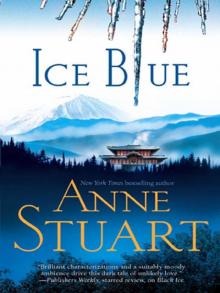 Ice Blue
Ice Blue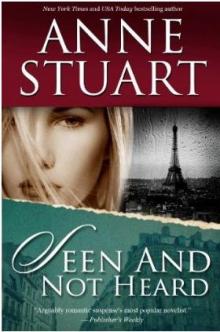 Seen and Not Heard
Seen and Not Heard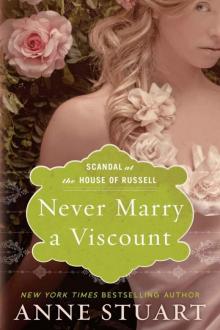 Never Marry a Viscount
Never Marry a Viscount Heartless
Heartless The Devil's Waltz
The Devil's Waltz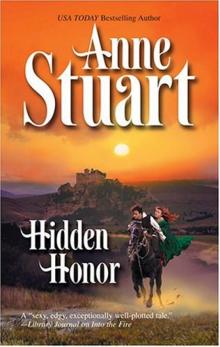 Hidden Honor
Hidden Honor Silver Falls
Silver Falls Fire and Ice
Fire and Ice Nightfall
Nightfall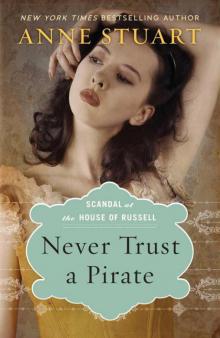 Never Trust a Pirate
Never Trust a Pirate The Soldier and the Baby
The Soldier and the Baby Still Lake
Still Lake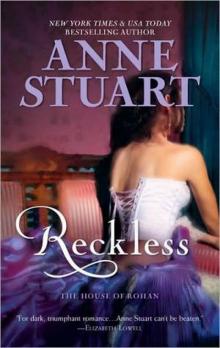 Reckless
Reckless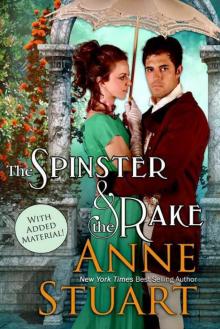 The Spinster and the Rake
The Spinster and the Rake Winter's Edge
Winter's Edge At the Edge of the Sun
At the Edge of the Sun Into the Fire
Into the Fire Night of the Phantom
Night of the Phantom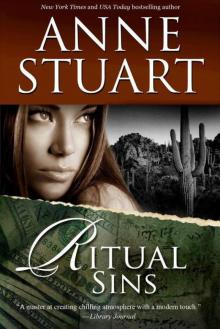 Ritual Sins
Ritual Sins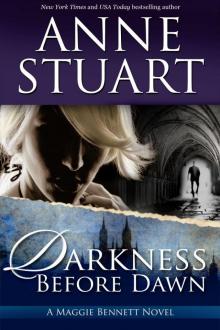 Darkness Before the Dawn
Darkness Before the Dawn Against the Wind
Against the Wind Ruthless
Ruthless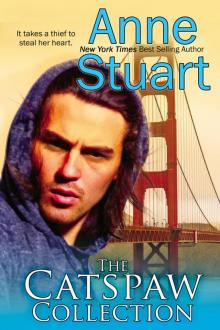 The Catspaw Collection
The Catspaw Collection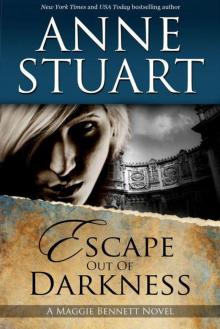 Escape Out of Darkness
Escape Out of Darkness The Widow
The Widow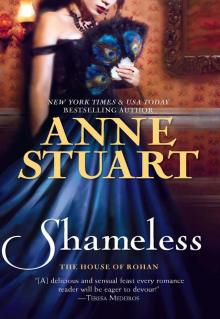 Shameless
Shameless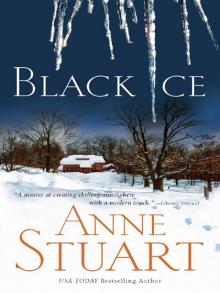 Black Ice
Black Ice Breathless
Breathless Shadows at Sunset
Shadows at Sunset Falling Angel
Falling Angel Housebound
Housebound Cold as Ice
Cold as Ice The Wicked House of Rohan
The Wicked House of Rohan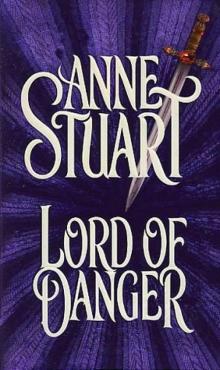 Lord of Danger
Lord of Danger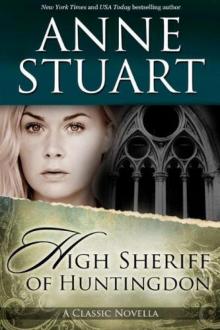 The High Sheriff of Huntingdon
The High Sheriff of Huntingdon Wildfire
Wildfire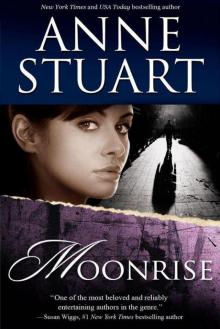 Moonrise
Moonrise The Demon Count's Daughter
The Demon Count's Daughter Date With a Devil
Date With a Devil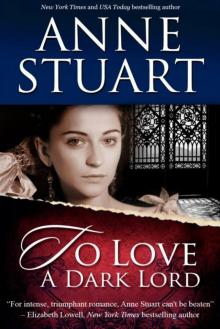 To Love a Dark Lord
To Love a Dark Lord Driven by Fire
Driven by Fire Special Gifts
Special Gifts Ice Storm
Ice Storm Shadow Lover
Shadow Lover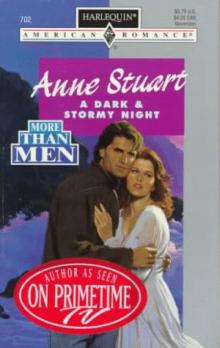 A Dark & Stormy Night
A Dark & Stormy Night Now You See Him...
Now You See Him...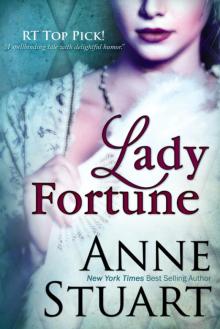 Lady Fortune
Lady Fortune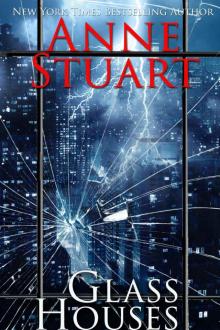 Glass Houses
Glass Houses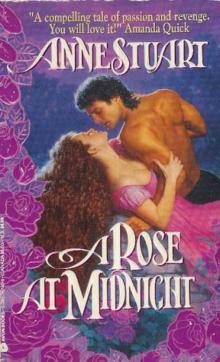 A Rose at Midnight
A Rose at Midnight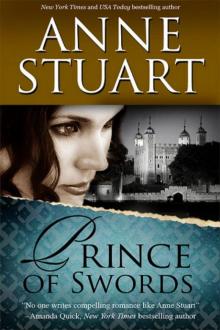 Prince of Swords
Prince of Swords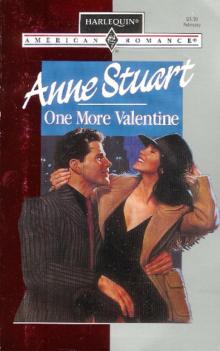 One More Valentine
One More Valentine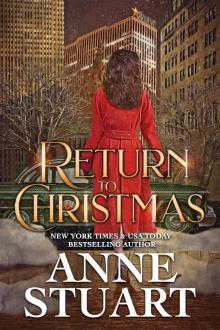 Return to Christmas
Return to Christmas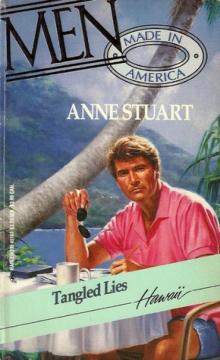 Tangled Lies
Tangled Lies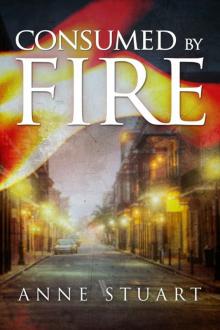 Consumed by Fire
Consumed by Fire The Fall of Maggie Brown
The Fall of Maggie Brown Wild Thing
Wild Thing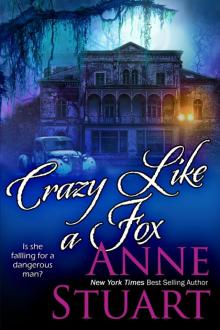 Crazy Like a Fox
Crazy Like a Fox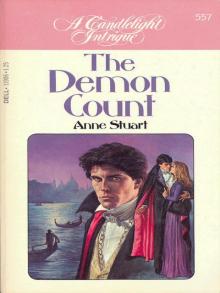 The Demon Count
The Demon Count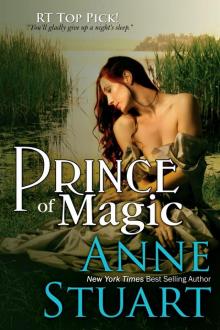 Prince of Magic
Prince of Magic Wildfire (The Fire Series Book 3)
Wildfire (The Fire Series Book 3)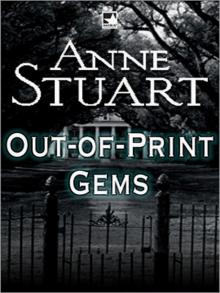 Anne Stuart's Out-of-Print Gems
Anne Stuart's Out-of-Print Gems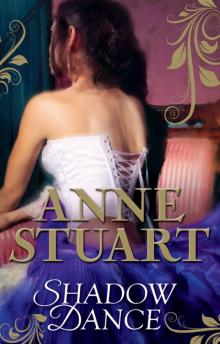 Shadow Dance
Shadow Dance Under an Enchantment: A Novella
Under an Enchantment: A Novella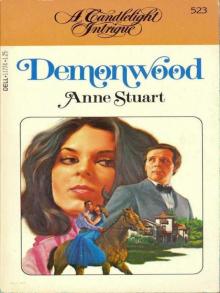 Demonwood
Demonwood Blue Sage (Anne Stuart's Greatest Hits Book 3)
Blue Sage (Anne Stuart's Greatest Hits Book 3)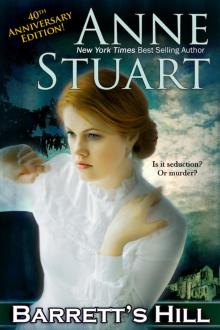 Barrett's Hill
Barrett's Hill Angel's Wings (Anne Stuart's Bad Boys Book 5)
Angel's Wings (Anne Stuart's Bad Boys Book 5)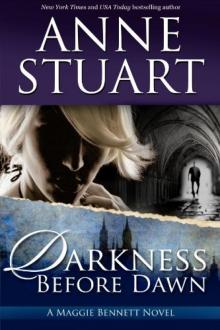 Darkness Before Dawn
Darkness Before Dawn The Right Man
The Right Man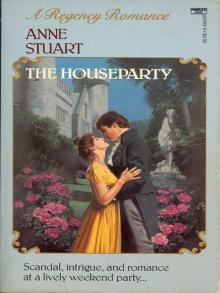 The Houseparty
The Houseparty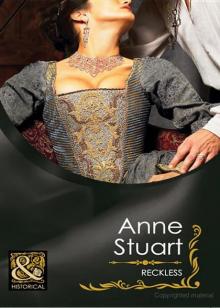 Reckless_Mills & Boon Historical
Reckless_Mills & Boon Historical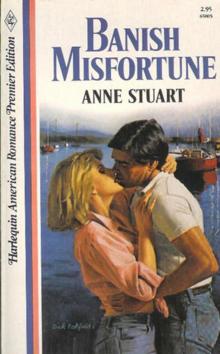 Banish Misfortune
Banish Misfortune Angel's Wings
Angel's Wings Chain of Love
Chain of Love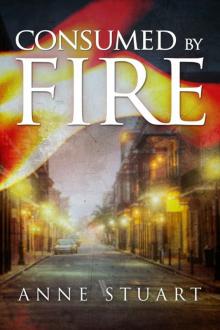 Consumed by Fire (The Fire Series)
Consumed by Fire (The Fire Series)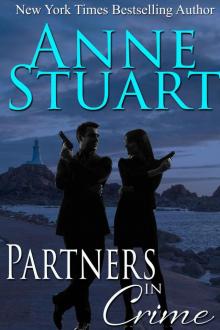 Partners in Crime (Anne Stuart's Bad Boys Book 4)
Partners in Crime (Anne Stuart's Bad Boys Book 4) The Soldier, The Nun and The Baby (Anne Stuart's Greatest Hits Book 2)
The Soldier, The Nun and The Baby (Anne Stuart's Greatest Hits Book 2)